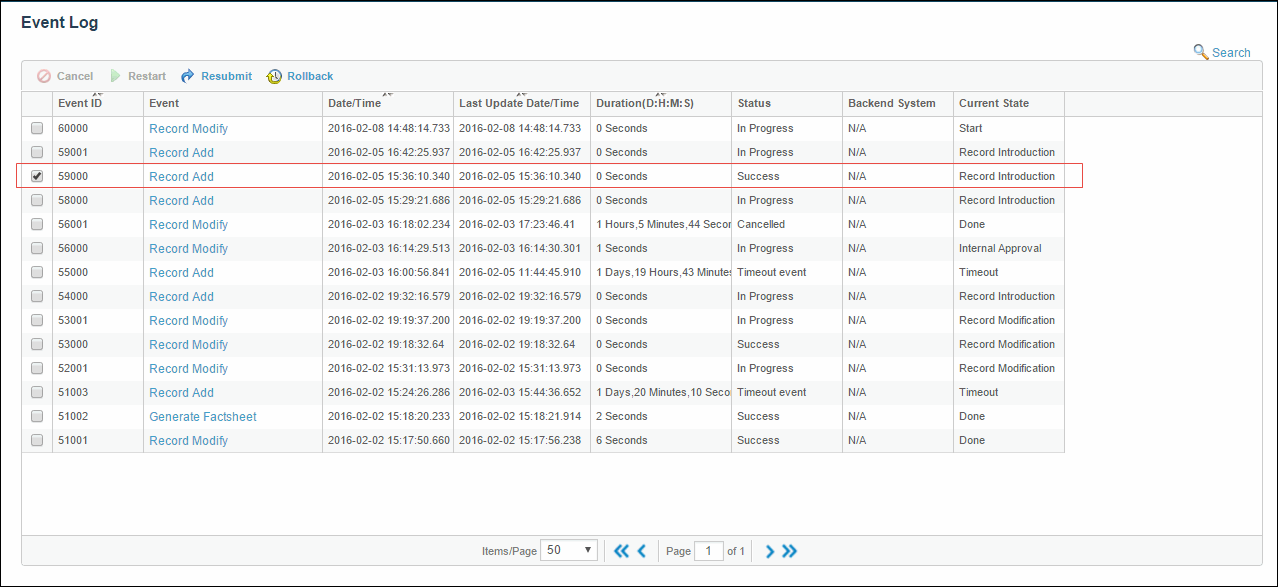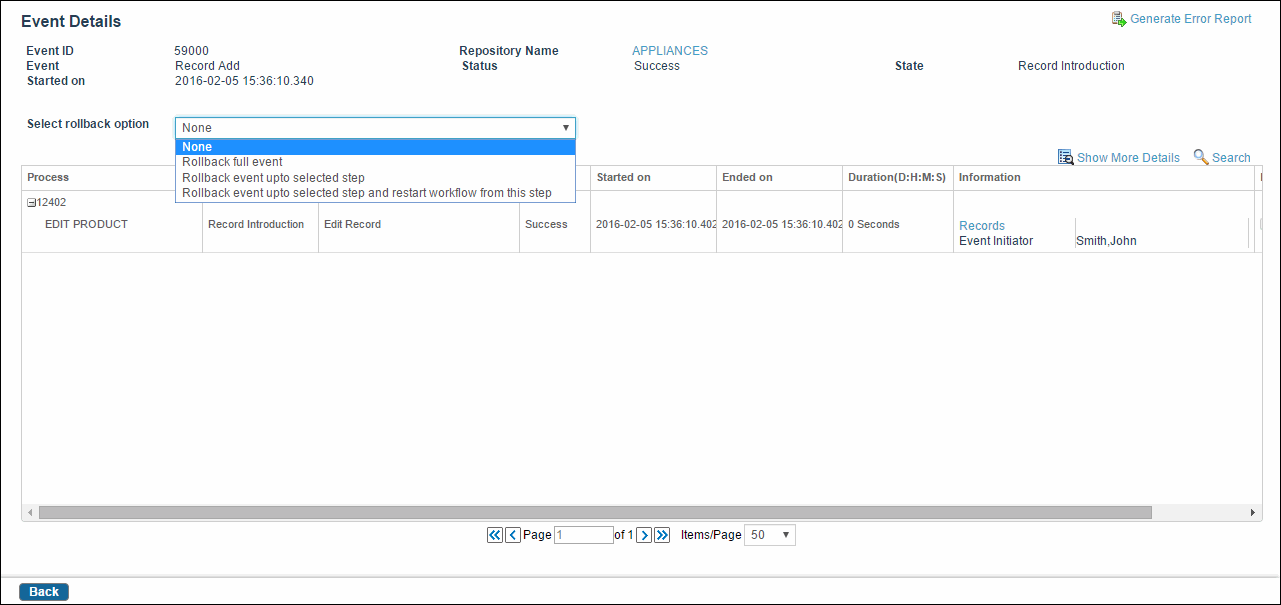After executing an event, you can use the Rollback option to roll back the impact of one or more events, or to a certain step in an event. You can rollback an event which is completed with a Success or Error status. After you start the rollback of an event, it cannot be stopped. Rollback deletes all master data related to rollback events.
Prerequisites
Grant permission to enable the Rollback action. Navigate to
Administration >
Resource Security >
Event >
Show Permissions >
Add GranteeResource Security and select
Allow for
Allow rollback and edit of event. To grant permission to restart the workflow from that specific step till where it was rolled back, select
Allow for
Restart paused event.
Perform the steps to rollback an event and not a record.
Procedure
-
Select an Event ID from the
Event ID column, and click
 .
.

The Event Details page is displayed.
-
From the
Select rollback option drop-down menu, select
Rollback full event,
Rollback event upto selected step, or
Rollback event upto selected step and restart workflow from this step.
-
If you select
Rollback full event, a warning message is displayed, the event is rolled back, and the event is no longer listed on the Event Log screen. If you select
Rollback event upto selected step, or
Rollback event upto selected step and restart workflow from this step, you must select the step in the Rollback column. Then, a warning message is displayed.
-
Click
OK to rollback the selected event or the event up to the selected step.
Note: Rollback upto the intermediate steps are not possible because the check boxes against intermediate steps on the
Event Details page are not enabled. In this case, update the value of
com.tibco.cim.processstate.history.enable property to
true in the Configurator, and then restart the application.
Result
After the rollback action is completed, the following tasks are executed:
- Updates state of the associated records
- Updates the version of the records
- Adjusts the relationships as appropriate
- Deletes the record versions, the entries from synchronization history, as well as the following master data related to the event:
EVENT, EVENTDETAILS, PROCESSLOG, PROCESS, PRINCIPALKEY, GOLDENCOPY, RELATIONSHIP, MCT, RCT, CONVERSION, DOCUMENTS, WORKITEMS, PROCESSDETAILS, FUTUREDATEDRECORD, and so on.
Copyright © Cloud Software Group, Inc. All rights reserved.

 .
.

